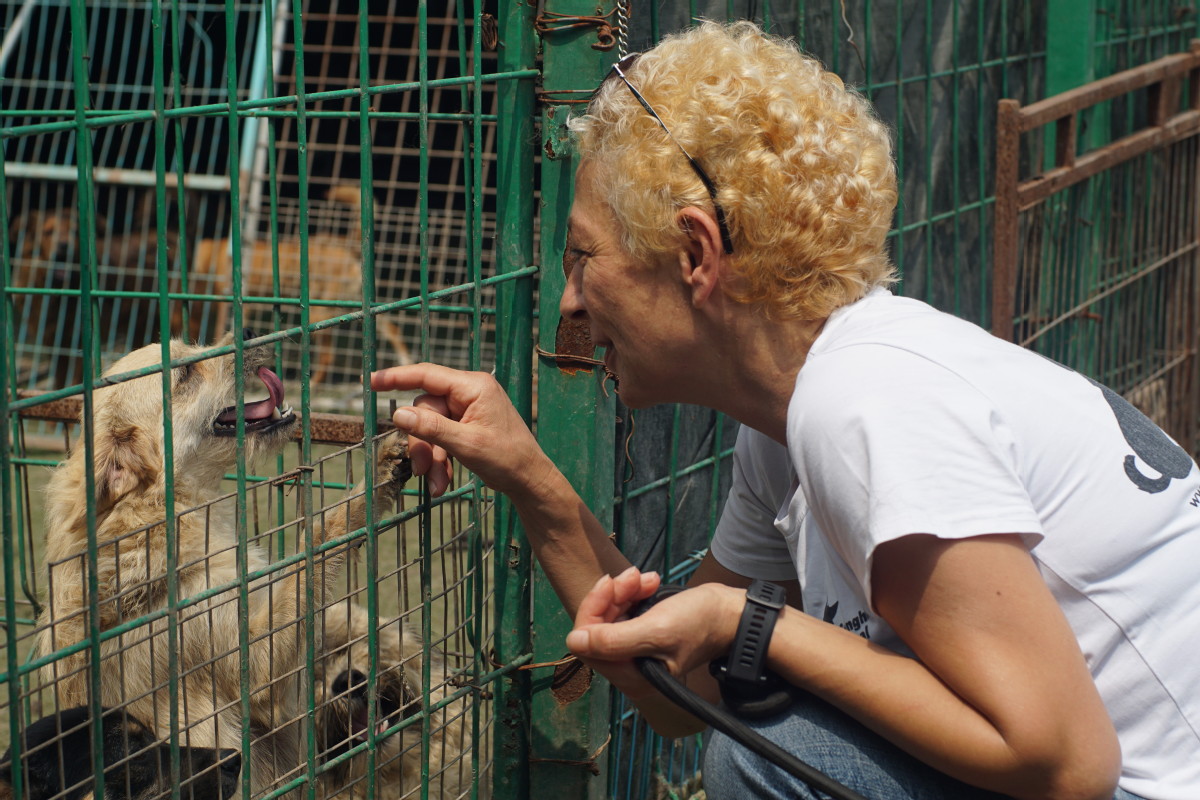Animal rescuers call for help to save strays
By Christine Low | CHINA DAILY | Updated: 2020-12-02 09:18

Rescuer woes
In November 2018, Nid Nair and a fellow animal rescuer received a call for help to take in stray and abandoned dogs in Shanghai. Knowing that dog shelters are scarce and many at overcapacity, the duo rushed to offer assistance. After that, Nair's phone rang constantly as people learned of his rescue work. This soon led to the formation of Eleventh Hour Rescues Shanghai.
"We call ourselves Eleventh Hour Rescues because in many cases, we get called at the eleventh hour to save an innocent dog's life," said the sales manager from India.
"Since we are only a small group, it often means that by the time someone requests our help, we are their last lifeline."
Though the main focus of the group is dog rescues, they have also saved cats, rabbits, pigs and other animals.
Unlike other countries, China only has an informal network of limited animal rescue centers that are not easily accessible to the public.
"Many people have this preconceived idea that all rescuers have a shelter that can magically house an unlimited number of dogs," Nair said.
Not only is the number of shelters limited, but most rescuers in Shanghai foster the animals until the pets find a permanent home.
"There's a misunderstanding that when a dog is rescued from the street, the problem is resolved. In fact, getting a dog off the street is only the beginning of the journey," Nair said.
The absence of animal welfare organizations means that the bulk of medical and other associated costs fall on the rescuers, who often need to conduct fundraisers to pay the medical bills of the rescued animals.
But the fundraising efforts can be misconstrued, and rescuers have faced criticism and rebukes from netizens. Some are accused of being scammers, despite images of medical bills being shown on fundraising posters.
Once, Liu uploaded short videos of disabled dogs at her home on her Tik-Tok short-video account, and one netizen criticized her for exploiting disabled dogs to do promotions and "attract fans".
Liu said she was angered by the comments and made another video in response, which expressed her incredulousness over the attack.
"I rescued all these dogs, how can I do this for my own benefit?" recounted Liu.
But after posting the second video the criticism continued, and Liu took it down on the advice of another volunteer.
"It's really not easy at all," Liu said. "Actually, I feel very wronged. I have unconditionally looked after these disabled dogs for six years at home, so what's wrong with that?"
Abandoned, abused
In Ningbo, Zhejiang province, Monica Hsu encounters cases far worse than just abandonment. Hsu, who is from Taiwan and works for a trading company, is the founder of the cat rescue center Yixiu, or "One night". Every year, Yixiu rescues 20 to 30 cats that have been badly abused, and about 10 of them have to be euthanized.
"We only have the ability to rescue so many. Otherwise, we would see more than 100 such cases," Hsu said. "But we don't have the financial capability to do that."
Some of Yixiu's most serious cases included a cat blinded in one eye due to children throwing stones at it, and another in shocking condition with its paws missing and its lower legs mutilated, with the bones exposed.
"Only rescuers see this side. Adopters are not exposed to all these problems," Hsu said.
Shelters, and even businesses like Diddy's Hood, are not eager to publicly disclose their locations as they discourage pets being abandoned on their doorsteps.
Macera once found some puppies dropped off outside his center. "Any time that you are a dog establishment, no matter what you do, people feel that whatever dogs they give you, you will keep," Macera said.
Wang Ranran, a financial company executive who started a dog shelter on the outskirts of Beijing in late 2017, said that the depressed economy in the past few years meant many people were unwilling to pay for their canine's medical treatment.
"An animal hospital we work with would call us and say that the owners had abandoned their dogs at the hospital as they didn't want to pay the medical bills," she said.
"After treating the dogs for free, the hospital would give the dogs to us, saying that they felt relieved giving the dogs to us."
























